Microgrants
Microgrants
The Museum of Jewish Montreal offers Microgrants for Creative or Cultural Exploration, providing seed funding to help young adults bring their innovative project ideas to life. This program provides an accessible entry point to connect with Jewish life both for the participant and for the public. By offering this funding, we hope to give applicants the chance to pursue their interests and realize their ideas while encouraging intellectual curiosity and community-building.
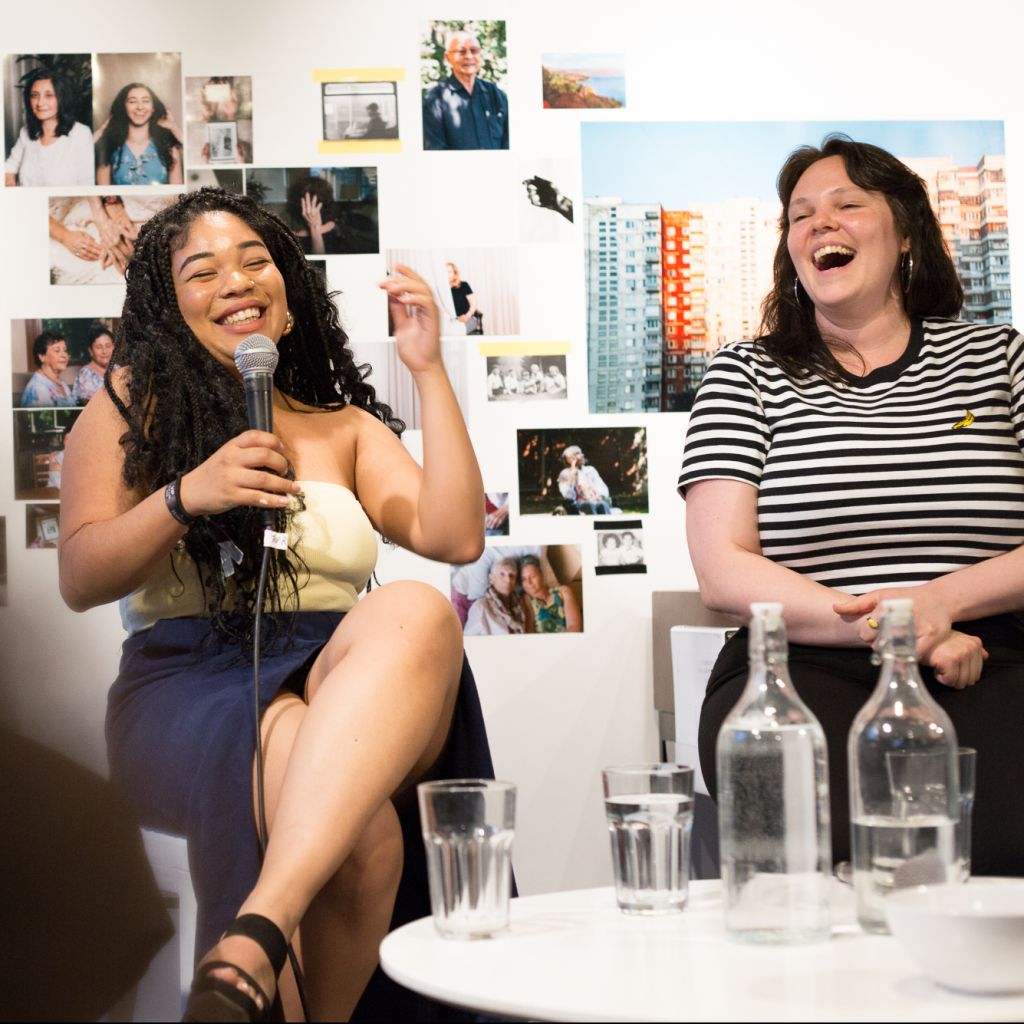
Launched in 2019, the Microgrant program provides funding to young adults to transform their ideas into innovative projects related to Jewish culture and identity. This program provides an accessible entry point to connect with Jewish life both for the participant and for the public. Participants benefit from a cohort-based professional development program and mentorship, building new skills and bringing their projects to life.
Microgrants at a Glance
Support that fits you
With options to create a public event or a public project, we offer a variety of timelines and assistance, so you can bring your creative vision to life.
Opportunity and Expertise
At MJM, we know a little something about creating programs on a micro budget. When you receive funding you also receive guidance on how to make the most of it.
A Community of Creatives
When you receive a Microgrant, you become part of a creative ecosystem that is transforming Montreal’s cultural landscape.
A Seed for Something More
Microgrants go beyond a single project, they give grantees the momentum, confidence, and connections to bring their creative practice to the next level.
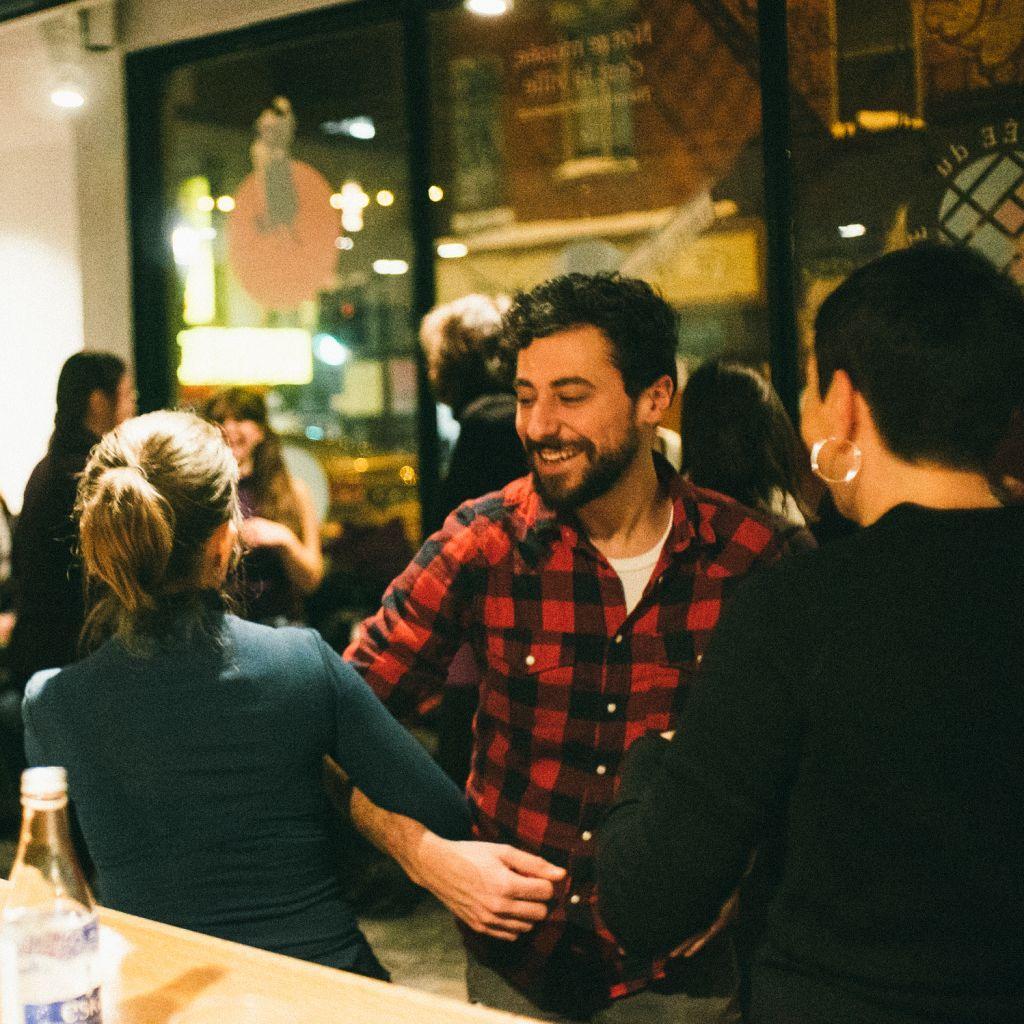
The Museum of Jewish Montreal offers Microgrants for Creative or Cultural Exploration, providing seed funding to help young adults bring their innovative project ideas to life. This program provides an accessible entry point to connect with Jewish life both for the participant and for the public. By offering this funding, we hope to give applicants the chance to pursue their interests and realize their ideas while encouraging intellectual curiosity and community-building.
Launched in 2019, the Microgrant program provides funding to young adults to transform their ideas into innovative projects related to Jewish culture and identity. This program provides an accessible entry point to connect with Jewish life both for the participant and for the public. Participants benefit from a cohort-based professional development program and mentorship, building new skills and bringing their projects to life.

Microgrants at a Glance
Be part of a cohort
Be part of a cohort
When you receive a microgrant, you’ll become part of a small, supportive cohort of fellow emerging artists, researchers, and cultural conveners. Together, you’ll exchange feedback, refine your ideas, and keep each other motivated as you bring your project to life.
Our 8-week seminar series is designed to help you grow—both creatively and professionally—as you develop your work. The cohort meets weekly on Tuesdays from November through January. You’ll receive a $500 stipend for participating in all seminar sessions, along with a few field trips and progress check-ins to keep you inspired and on track.
As part of our microgrant program, you can choose between two exciting funding opportunities: Public Events or Public Projects. Each option supports different types of creative work so that you can stay true to your vision.
Public Projects
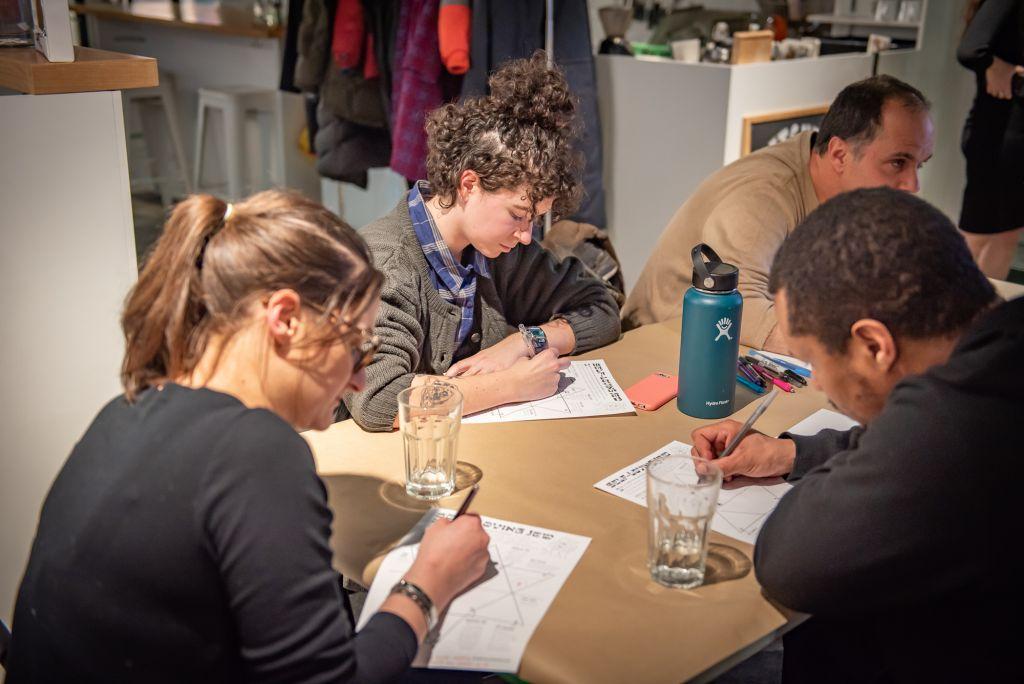
- Receive $1,400 in project funding
- Perfect for works that can be shared in written or visual form, such as essays, research articles, oral history collections, zines, graphic novels, or films
- We encourage projects to involve the community in some way during their development. This could include discussion groups, reading circles, interviews, or collaborative workshops
Public Events
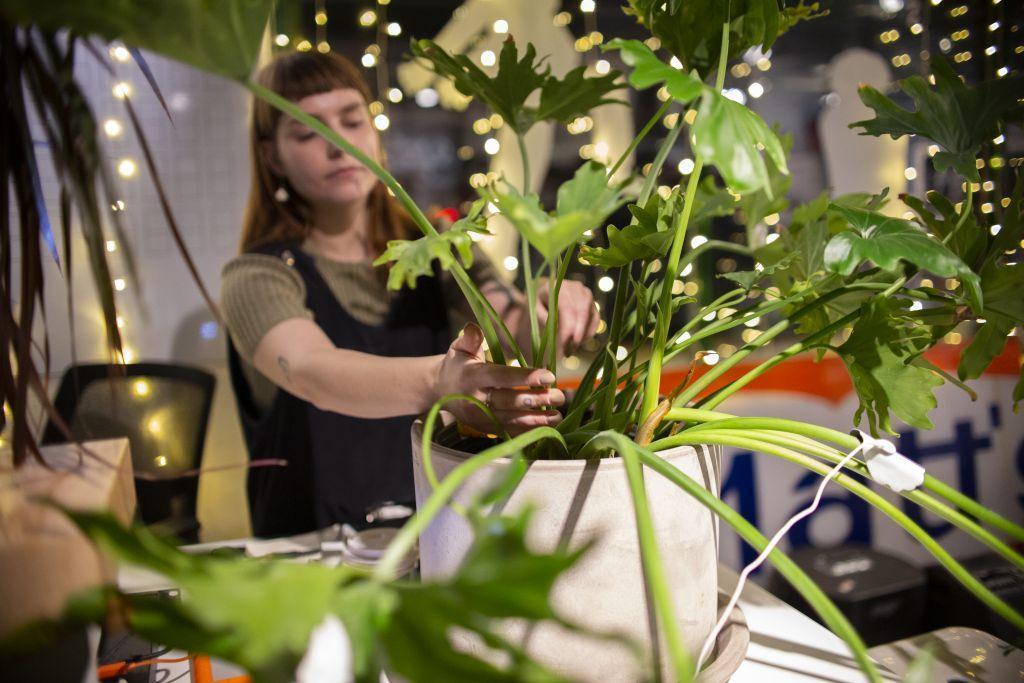
- Receive $1,500 in project funding
- One grantee will host a public event each month, from February to June
- Ideal for live or in-person experiences like creative workshops, concerts, book launches, theatre performances, film screenings, puppet shows, and more!
How To Apply
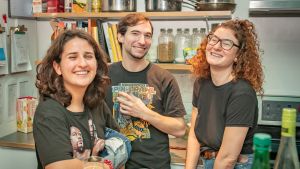
Applications to our Microgrant Program are currently closed. Our next call will be posted in Summer 2026.
Who can apply?
All applicants currently living in Montreal are invited to apply as individuals or in small groups (up to 3 people) for creative projects at any stage of development. We welcome applicants from all backgrounds, however proposed projects must relate to Jewish culture or identity.
Applicants of all ages are welcome to apply. Priority consideration will be given to those aged 18-35 with multifaceted and intersectional identities (these could include, but are in no way limited to: members of racialized communities, newcomers, those from interfaith backgrounds, people with disabilities, LGBTQ2+, and gender non-conforming persons).
We do not accept project proposals towards: 1) an academic course or class credit, 2) the applicant’s workplace or other organization in which the applicant is involved, 3) operational funding for a business or organization, or 4) charitable organizations.
What kind of projects can be proposed?
Microgrant projects may include a live event component, or may be produced without the intention of hosting a public-facing event. Projects without a live event component should ideally engage with the community in some way during the project’s development (i.e., discussion groups, reading circles, interviews). In the application form, applicants will be asked to select whether their project will be presented as an event or non-event.
All participants will receive development and production support from Museum staff.
We are looking for projects from each of the following areas: food, art, and culture/heritage.
Though not limited to the following, projects may include:
- Small printed publications/zines/chapbooks
- Research project or article
- Hands-on workshop
- Presentation: book reading, lecture, concert, performance
- A website, blog or social media account (Instagram, TikTok)
- A personal/family exploration project, to be presented in a format of choice
- A project focused on community-building through an experimental activity
When to apply?
Our annual call for applications opens each fall. The application deadline for the 2025–2026 Microgrants for Creative or Cultural Exploration is October 12, 2025.
Click here see the call for applications
Applications to our Microgrant Program are currently closed. Our next call will be posted in Summer 2026.
Where do I send my application?
Click here to view the 2025-2026 application form
Click here to view the call for applications
Applications are due no later than Sunday, October 12th 2025 at 11:59pm
Meet our Micrograntees
Meet our Micrograntees
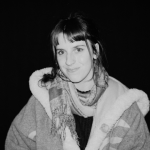
Sonya (Sofia) Butseva
A Russian-American multidisciplinary artist and puppeteer based in Montreal and the Northeast Kingdom of Vermont, Sonya is currently pursuing a DESS in contemporary puppet theatre at UQAM. Her path has also been shaped by studies in sculpture (Maison des Métiers d’Art de Québec) and ecological agriculture (McGill University). Much of her puppetry work has been centered in lambe-lambe, a form of miniature theatre in a box. For the Microgrant Program, Sonya will be co-developing a live puppet show exploring notions of home in the context of artist Marc Chagall’s Yiddish poetry.
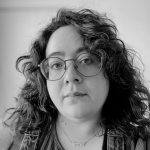
Noa Ellyn
An illustrator and community worker based in Montreal, Noa’s debut graphic novel, Ginger Goodwin: A Worker’s Friend is available from Between the Lines Books. As a part of the Microgrant Program, Noa will be developing an illustrated zine on the Jewish holiday Rosh Chodesh, which marks the beginning of each month in the Hebrew calendar.

Merav Epstein
A multidisciplinary artist based in Montreal, Merav received a BFA in Film Animation from Concordia University in 2021. She has work experience in animation as a Production Coordinator at DNEG Animation Studio and has animated multiple freelance music videos for artists in Canada and the United States. Inspired by Marc Chagall and Montreal’s stained glass windows, Merav will be hosting a painting-on-glass workshop as a part of the Microgrant Program.

Josh Fichman-Goldberg & Alex Rand
Josh Fichman-Goldberg is a multidisciplinary performing artist based in Montreal. Through his showcase events and live performances, he seeks to celebrate and reimagine Jewish cultural expression for contemporary audiences. Passionate about Jewish history and diaspora culture, he is an active member of Montreal’s klezmer music community. He is excited to be exploring new avenues of artistic creation through the Microgrant Program. Josh is also pursuing a career in law, currently working in consumer rights advocacy for a Canadian non-profit organization.
Alex Rand is a Montreal-based musician. He has toured internationally as an independent artist and as a member of groups such as Common Holly, The Weather Holds, and Look Vibrant, recording and releasing albums on record labels such as Paper Bag Records and Jurassic Pop Records.
Together as a part of the Microgrant Program, Josh and Alex will be producing an album that blends historical klezmer music with contemporary hip-hop and rap.
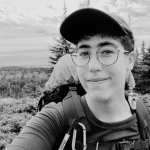
Micah Goldstein
An emerging illustrator, cartoonist, and animator with a BFA in Film Animation from Concordia University, Micah’s work has been shown throughout the Montreal area. Through ritualistic, roundabout, and meditative processes, Micah creates beautiful, intimate, and dense worlds for the viewer to join her in. Micah is producing a graphic zine on alternative ways to celebrate Jewish holidays with loved ones as a part of the Microgrant Program.
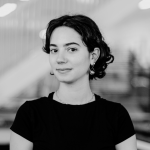
Levana Katz
An interdisciplinary artist based in Tiohtià:ke / Mooniyang (Montréal), Levana holds a BFA in Painting and Drawing from Concordia University. Levana creates multimedia installations, primarily working across material processes such as drawing, printmaking, and fibre arts. She has participated in artist residencies across Canada. As a part of the Microgrant Program, Levana is creating an artist book that will culminate in a creative workshop.

Taraneh (TARANEH) Krispil
A music producer, songwriter, and performer based in Montreal, TARANEH received a diploma in Digital Music Production and went on to form Vancouver’s girl group NADUH. As the producer behind all-femme band NADUH, TARANEH helped drive the group’s success, growing its international tour history. Her music has been featured in numerous media outlets, and has served as the sonic backdrop for New York Fashion Week and Vancouver Fashion Week. TARANEH works as an engineer and Ableton educator, helping other musicians learn how to self-produce their music. Her work has recently been supported by the Canada Council for the Arts.
As a part of the Microgrant Program, TARANEH will be producing a collection of songs that blend her Moroccan Jewish heritage with contemporary beats.
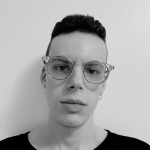
Sam Melnick
A writer, stage manager and emerging filmmaker based in Montreal, Sam holds a diploma in Professional Theatre Production from John Abbott College. His first play Helpful/Positive was developed with Playwrights’ Workshop Montreal and received funding from the Canada Council for the Arts. Sam is pleased to be a member of the Microgrant Cohort this year, where he will be developing a short documentary film on the late Montreal theatre producer Allan Sandler.

Alexandra Gorlin-Crenshaw
Combining musical performance with storytelling, Alexandra is working on a live performance entitled Song/Book, blending Yiddish folk songs accompanied by handmade artist books.

Jen Jack
A researcher and theatre artist, Jen’s project is inspired by the multilayered history of Cinéma L’Amour, and more specifically, its roots as a Yiddish vaudeville venue. Jen will be creating a miniature theatre that explores the legacy of this iconic building, and the histories of Yiddish theatre in Montreal.

Sophie Kastner & E.B. Sciales
Inspired by Jewish Montreal’s rich culinary history, Sophie and E.B. are collaborating on an illustrated cookbook. Blending comic arts with oral histories, their book will contain anecdotes and recipes from Jewish Montrealers, starting with Sophie’s own family history in Montreal’s Jewish quarter.

Luke Langille
Combining storytelling and illustration, Luke is working on a graphic zine that considers the intersections between Judaism, race, and urban history centring on the etymology of “the ghetto” and its origins in Montreal.

naveed L. salek nejad
A researcher, artist, and cultural mediator, naveed’s project blends historical research with community-centred art making. Looking to the “March 1968” expulsion of Jews in Poland from a queer lens, naveed will present their research in conjunction with a creative workshop designed for queer and trans Jews in Montreal.

Ted Strauss
An independent researcher, Ted is collecting information on the under-explored life of Myers Solomon, his involvement with Montreal’s Shakespeare Club in the nineteenth century, and how his life intersected with the broader history of Canadian Confederation.

Madison Strižić
A multidisciplinary artist and researcher, Madison is creating a series of pocket exhibitions stemming from oral history collections and archival research, which will be presented to the public.

Ilana Zackon
An actress and singer, Ilana is working towards a performance-presentation centred on her grandmother’s involvement with Montreal’s former Committee for Soviety Jewry.

Armias Azariya
Embracing Black and Jewish heritages, Armias’ music video and single, Self Portrait, serves as a response to address antisemitic viewpoints that have emerged from prominent celebrities in the African-American community. Armias hopes to foster a sense of unity by shedding a light on his own experience, further harbouring a sense of connection and understanding between both communities. His song aims to celebrate cultural and religious diversity by bringing about a more harmonious and inclusive space.
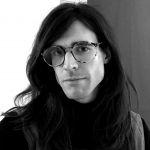
Ry Livingston
Inspired by Montreal’s food history, Ry is conducting a research project on Wilensky’s Light Lunch located in Montreal’s Mile End neighbourhood. Serving bologna sandwiches in the same way since its doors opened in 1932, Wilensky’s is one of the few remaining Jewish food establishments in the city. From interviews and secondary research, Ry’s project considers how Wilensky’s functions as an interactive museum and heritage site, preserving the tastes and smells of a bygone era of Jewish Montreal.
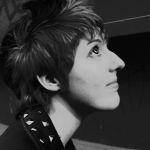
Madelaine Longman
Using poetry as a tool for exploring experiences as a queer, neurodivergent Jewish person, Madelaine’s chapbook of self-written poems, Minder, considers the nuances of these identities. What might community mean to a person on the autism spectrum? How can we hold space for the many possibilities of what neurodiversity, Judaism, and poetry can be? Madelaine’s project culminated in a launch and poetry reading with fellow writers David B. Goldstein and Melanie Power.
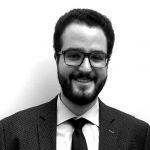
Jesse Moss
Curious about the challenges faced by Montreal’s Jewish community in the early 20th century, Jesse’s research project explores Jewish juvenile delinquency. Looking at records from the Montreal Juvenile Court and Shawbridge Boys’ Farm (a youth detention centre), Jesse’s project investigates divides in class, language, religion, and how these factors played a role in this understudied aspect of Montreal’s Jewish history.
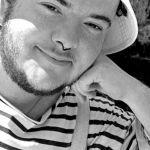
Karl Ponthieux Stern
Influenced by the Yiddish term, doikayt (“hereness”), Karl produced a zine considering various relationships to place. Following a recent move from their native France to Montreal, Karl’s zine playfully acts as a tool to communicate personal experiences, but also encourages others to reflect upon their connections to home and hereness – wherever that may be. Karl’s project culminated in a workshop, using the zine as a guide for creation and discussion.
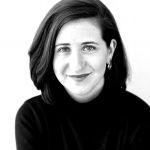
Talia Ralph
With a hunger to build community among queer moms in Montreal, Talia’s project took shape as a social evening for moms of all stripes to meet, mingle, and share stories of their respective journeys in motherhood. Rabbi Adina Lewittes was invited as a co-speaker to facilitate conversations around family, relationships, and parenting.
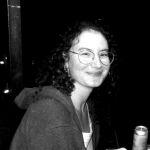
Celia Robinovitch
Drawing upon her existing knowledge in herbalism, Celia’s project explored how plants have been used in Jewish rituals of health, wellness, and spirituality across the diaspora and among generations. Celia facilitated an interactive workshop where guests made personalized besamim pouches, filled with herbs that are known to be used in Jewish herbalist tradition.
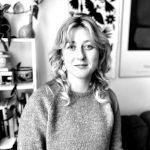
Shannon Stride
Weaving together her Judaism with her Irish heritage, Shannon’s project takes the form of an interactive workshop that highlights on centuries-old fibre art practices of these cultures. After exploring various weaving techniques, workshop participants will work on a personalized tapestry using a handmade loom.
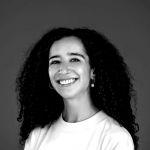
Aysha White
Inspired by her family’s immigration to Ottawa in the 1960’s and their subsequent love for kosher delis, Aysha’s zine celebrating one of Montreal’s most cherished meals is a personal and historical reflection on her grandparents favourite delicatessen meal: smoked meat sandwiches.
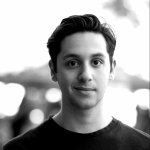
Brandon Kaufman
Interested in the tensions between film technology, photography, analogue versus digital, and Orthodox Jewish law, Brandon’s project is a short documentary about melakhah – or the activities banned on Shabbat – as it pertains to documentation on the sabbath.
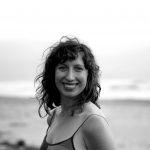
Etta Sandry
Seeking a deeper understanding of the parallels between Jewish inquiry and her textiles practice, Etta will host material sampling groups for artists within the community that centre question-asking and play as integral elements of the research-creation process.
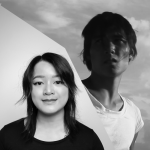
Maka Ta and Terry Chiu
Documenting Montreal’s Chinatown on lower Saint Laurent Boulevard and its origins as a Jewish quarter, Maka Ta and Terry Chiu’s zine will centre Chinese and Jewish cultural exchange and the effects of gentrification on displacing marginalised communities.
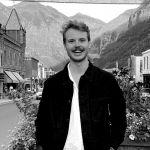
Max Holzberg
Partnering with the Museum of Jewish Montreal’s research team – and contributing to their work on the same topic – Max’s zine will delve into the history of Naches, the first Jewish queer and community organising group active in Montreal in the 1970’s and 80’s.
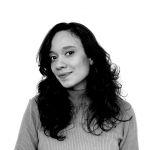
Wanessa Cardoso de Sousa
Through recorded interviews with community members and a public round table held at the Museum, Wanessa’s project will demonstrate the role of personal libraries in preserving Jewish culture and heritage and unpack the impulse to form personal collections.
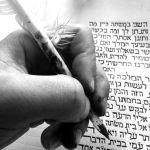
noa g
In looking at ancestral and contemporary women and queer scribes, noa aims to increase accessibility and a feeling of connectedness to this ritual practice within the Montreal Jewish community. Her project takes a queer-feminist approach to sofrut (ritual scribe work), an area of Jewish culture that is largely dominated by men, but of which women and queer people have always been a part.
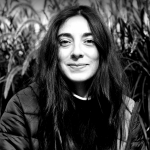
Sultanna Krispil
Born to an Israeli-immigrant father and a Deux-Montagnes mother, in recent years Sultanna has found herself curious about her Jewish lineage and its Moroccan roots. Sultanna’s project marries these two lines of curiosities as she plans to make a short documentary that follows her process of making a Moroccan rug, woven together with her research and family interviews.
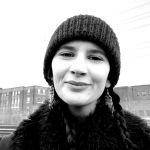
Rach Klein
Their father set up the first hot glass art studio in Montreal, and two years ago Rach came across an archive of his works. Their documentary, How To Hold Glass, will unravel these findings to reflect on familial memory, and the spiritual history of glassmaking and its emergence in ancient Jewish communities in the Middle East.

Damián Birbrier
Inspired by his family history of travelling and immigration, Damian’s musical instrumental exploration project Agua draws upon the significance of the rivers found in each of his relatives’ home cities (Kiev, Buenos Aires, São Paulo, and now the Saint Lawrence).
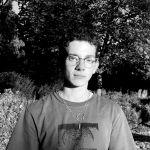
Mika Benesh
Focused on emerging and ritual Jewish ritual practices, Mika’s project will culminate in a workshop where members of the community are encouraged to bring personal items to be cast in silver, creating protective amulets of their own.
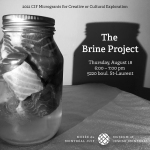
Simone Lucas
The Brine Project asks how odorous, pickled fish brine could be remediated as a multimedia video installation. Simone’s project investigates how brine and video-as-brine can preserve stories about fish and Jews, and included a home-preserved fish tasting session and introduction to the pickling process.
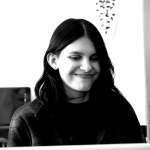
Hannah Grover
A multimedia artist, Hannah is developing a sapphic web series entitled Mazel which follows the relationship between two friends, Miriam and Lindsay, as they navigate their sexuality, religion, and politics. Through a live script reading of Mazel, Hannah sought to understand what the public would like from sapphic Jewish storytelling and representation.
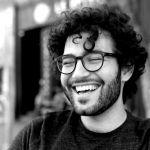
Nesi Altaras
Turkish-born writer and language enthusiast Nesi Altaras facilitated a workshop on Ladino and its many proverbs. After learning about Ladino’s development, decline, and recent revivals of this unique Sephardic language, participants were encouraged to create idioms of their own.
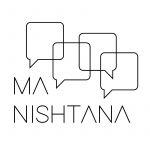
Valentina Gaddi and Alexandra Stankovich
Valentina Gaddi and Alexandra Stankovich are two young researchers in Jewish studies, one linked to sociology and the other to philosophy. Passionate about contemporary issues of Montreal and Canadian Jewry, they created the podcast Ma Nichtana. The project, at the crossroads of academic reflection, community and personal experiences, enters into dialogue with community leaders, intellectuals and activists to discuss their understanding of Jewishness today.
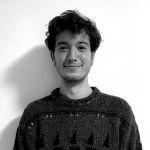
Zack Youcha
An emerging historian and musician, Zack is producing an album with local and international musicians that will showcase the expansiveness of the oud – a popular stringed instrument central to many North African Jewish communities.
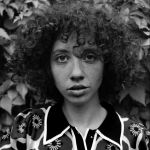
Sonia Bazar
Centered on the location of the Back River Cemetery – Montreal’s oldest Jewish cemetery – Sonia’s zine combines their photography and writing practices to investigate how we can memorialize and respect our community’s dead and the land upon which they rest.
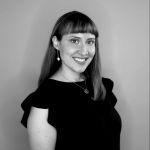
Sarah Deshaies
Coming from the lived experience of being raised in an interfaith household, Sarah’s podcast “Chrismukkah Party” discusses how interfaith families have forged alternative methods of celebrating holidays and other life events.
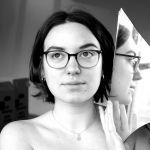
Claire Sigal
Inspired by her great-grandmother’s involvement in Montreal’s garment industry – and through using a pattern based on one of her designs – Claire’s embroidery workshop highlighted her family’s history and the connective threads between Jewish identity and the art of mending.
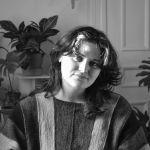
Iso Setel
Through a self-made publication and accompanying walking tour, Iso is exploring queer orientations of Jewish urban space with a focus on Montreal’s eruvin. Their project investigates how queer folks may create alternative paths of connection that are rooted in Orthodox Jewish wayfinding practices.
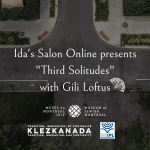
Gili Loftus
A musician who completed her doctoral studies at McGill University, Gili Loftus produced an online salon entitled Third Solitudes that celebrated Yiddish poet Ida Maze through an afternoon of poetry and song with special guests including Sebastian Schulman, Noa Haran, Pierre Anctil, Chantal Ringuet, and Ida’s son Irving Massey.
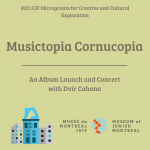
Dvir Cahana
Emerging musician and songwriter Dvir Cahana hosted an online album launch entitled Musictopia Cornucopia. Shaped as a live listening party, Dvir shared new recordings with attendees and then prompted guests with a question to consider regarding the theme of the song that was played.
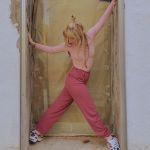
Naomi Johnston
Dancer and cultural worker Naomi Johnson facilitated an in-person all-levels dance workshop, Moving Together, which focused on sensory-based movement research and choreographic improvisation techniques. Naomi’s workshop operated under the framework of Tikkun Olam with an intention to foster community, safety, and inspiration.
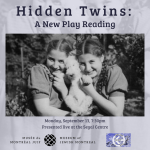
Alice Abracen
Playwright Alice Abracen hosted a live play reading of a new work, Hidden Twins, which explores the true story of two twins, Nadia and Vera, who were forced to masquerade as Protestants to escape Nazi persecution. The play was directed by Ellen David and held at the Segal Centre for the Performing Arts, with an audience feedback session following the performance.
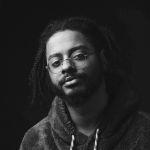
Jared “J-Rob” Roboz
With a love for cooking, J-Rob and his friend Hoai-Nam Bui developed Triple F Kitchen (standing for Friendship, Fusion, and Food) as a way to combine their mixed identities, J-Rob being Caribbean and Jewish, and Hoai-Nam being Vietnamese-American.
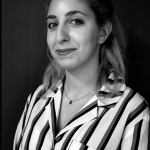
Rebecca Turner
Taken from her love of folklore, Rebecca’s self-written and self-produced radioplay, Blut und Blintzes, focused on the coming-of-age of a young vampire as she navigated her new identity. Written in Yiddish, the radio play was performed live by a group of emerging actors.

Cee Lavery
Taken from the discovery of a Franz Kafka book, Cee produced a comic entitled Der Eydes–The Witness about the treasure he found and the treasure it led to. This is an ongoing project that is currently being produced in a full volume with funding from the Canada Council of the Arts.
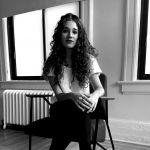
Naakita Feldman-Kiss
Drawing from familial histories of immigration and composed of archival materials, Naakita’s video artwork Remaking Edgware centres upon her family’s pre-war life in Leipzig and experiences of their flight path to the Caribbean.
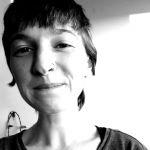
daph ben david
Looking to Jewish sacred texts, daph reveals that genderqueer people have always existed in Judaism. Through their meditative workshop, daph embraced queer community and proves that there is space for everyone in religious Jewish texts.
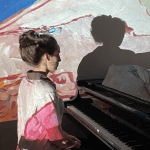
Alexandra Gorlin-Crenshaw
Pianist and soprano Alexandra Gorlin-Crenshaw performed a live-streamed multimedia performance titled Songs of Solomon, based on the work of the German-Jewish painter, Charlotte Salomon.
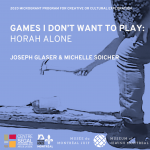
Michelle Soicher & Joseph Glaser
Games I Don’t Want to Play is a celebration of millennial Jewish identity in all its contradictions. Michelle and Joseph have combined their theatre and music backgrounds to create a digital collective performance titled Horah Alone, a remixed version of the bar-mitzvah hit the Cha-Cha Slide by DJ Casper, with new words by the artists.
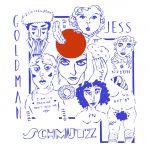
Jess Goldman
Writer and artist Jess Goldman’s SCHMUTZ is a chapbook of short stories queering Yiddish folklore.
Program Sponsors
Program Sponsors
The 2025-26 cohort is generously sponsored by: The Betty Averbach Foundation, CANVAS Emerging Network Grant through The Azrieli Foundation, The Canadian Race Relations Foundation.
More Ways to Engage
Exhibitions
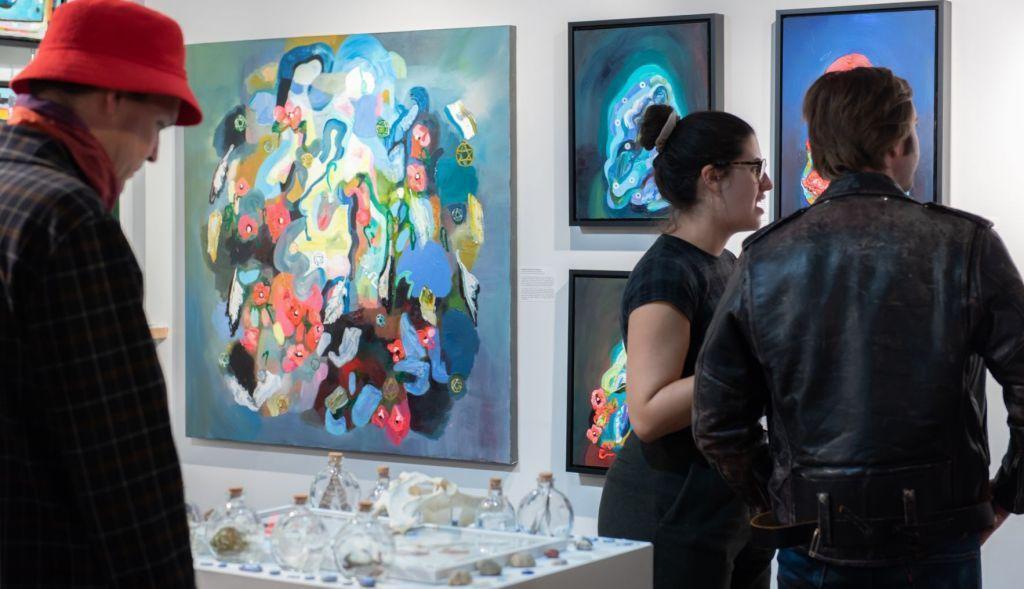
The Museum’s arts programming and exhibitions seek to share Montreal’s diverse Jewish heritage and highlight contemporary issues and questions through innovative approaches. These include contemporary art exhibitions and performances, pop-up exhibits, and murals.
Events
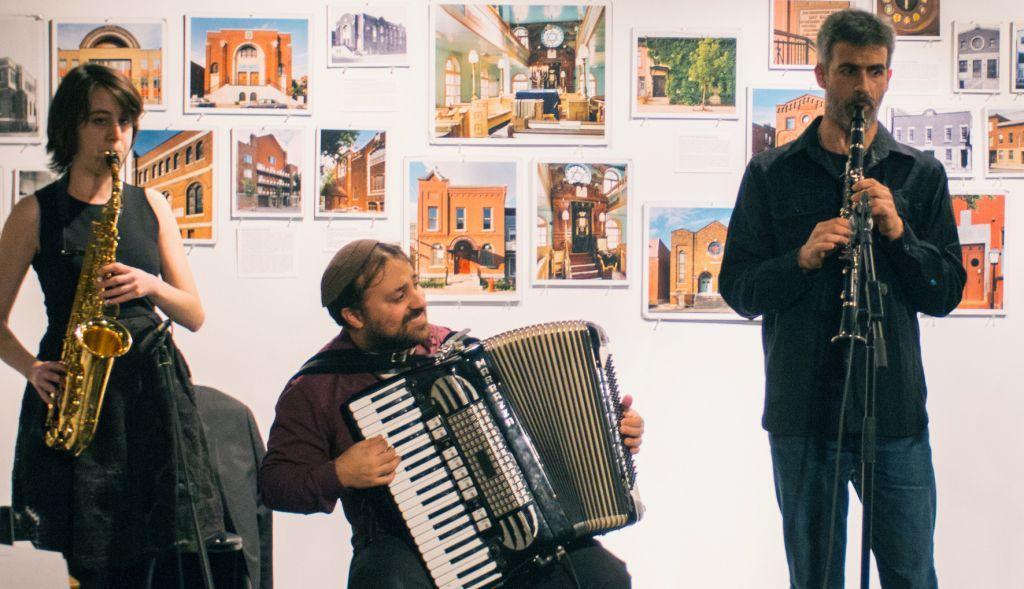
Our events act as a way to strengthen our audiences’ connections to community and Jewish arts and culture through new experiences. These include concerts, workshops, storytelling events, vernissages, salons and talks, holiday markets, book launches, children’s events, pop-up dinners, and parties.
MJAC
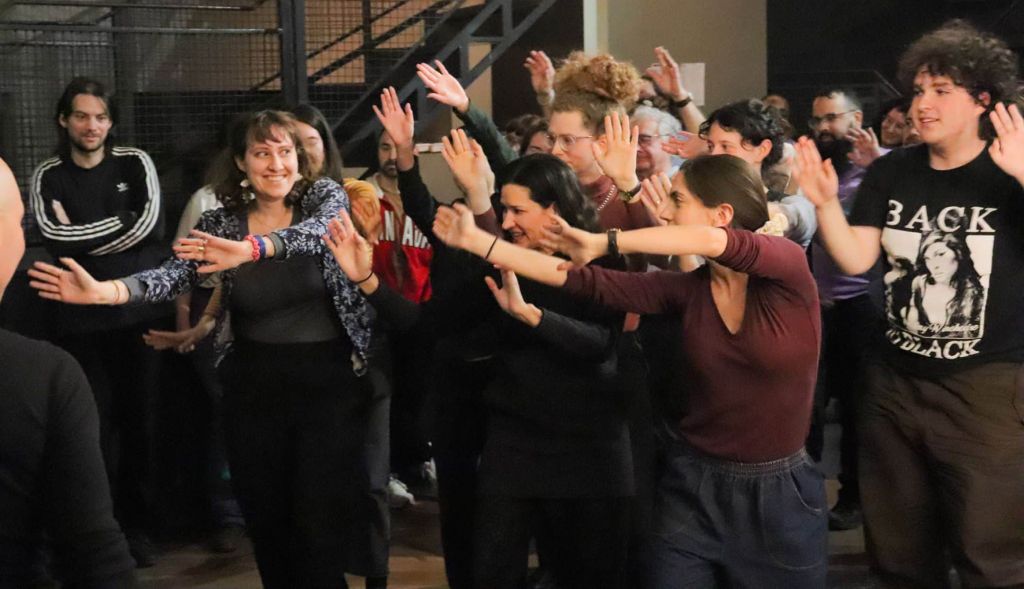
The Montreal Jewish Arts Collaborative (MJAC) brings together three of Canada’s leading Jewish arts organizations to offer artists mentorship, funding, and opportunities to connect. Join us by attending an event, subscribing to the MJAC newsletter, or connecting through a partner organization.
More Ways to Engage
Exhibitions

The Museum’s arts programming and exhibitions seek to share Montreal’s diverse Jewish heritage and highlight contemporary issues and questions through innovative approaches. These include contemporary art exhibitions and performances, pop-up exhibits, and murals.
Events

Our events act as a way to strengthen our audiences’ connections to community and Jewish arts and culture through new experiences. These include concerts, workshops, storytelling events, vernissages, salons and talks, holiday markets, book launches, children’s events, pop-up dinners, and parties.

